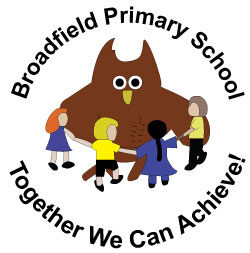Intent
Our intent is to provide opportunities for children to develop as confident, articulate and well-rounded children who can succeed as individuals and contribute to their community and the wider world.
Early reading is identified as a key priority on our school improvement plan. Leaders monitor the provision of reading through learning walks in Literacy and Phonics session and the impact of this provision through the analysis of end of year cohort data (Phonics screening check and end of KS1 reading and individual pupil progress throughout the year (on going assessments).
We believe that for all our children to become fluent readers and writers, phonics must be taught through a systematic and structured phonics programme. Therefore, we have implemented the Little Wandle Letters and Sounds Revised to plan and provide daily engaging phonics lessons. In phonics, we teach children that the letters of the alphabet represent a different sound, that these can be used in a variety of combinations and are put together to make words.
Using this programme, we are confident that:
- grapheme/phoneme (letter/sound) correspondences are taught a clearly defined, incremental sequence;
- we introduce children very early on to a defined initial group of consonants and vowels, enabling them to read and spell as soon as possible many simple CVC words;
- children are taught the highly important skill of blending phonemes, in order, all through a word to read it;
- children are taught to apply the skills of segmenting words into their constituent phonemes to spell; blending and segmenting are reversible processes.
As a result, all our children are able to tackle any unfamiliar words that they might discover. We also model these strategies in shared reading and writing both inside and outside of the phonics lesson and across the curriculum. We have a strong focus on the development of language skills for our children because we know that speaking and listening are crucial skills for reading and writing in all subjects.
Implementation
- In the nursery, children follow Phase 1 foundations for phonics
- In reception and Y1, children follow the progression within Little Wandle Letters and Sounds Revised programme. Phonics is taught daily and there is a review session on a Friday.
- By the end of reception, children will have been taught up to the end of phase 4.
- By the end of year 1, children will have been taught up to the end of phase 5.
- In Autumn 2022 all children in Year 2 will access Year 1 Summer term teaching progression as a result of lost learning time throughout COVID.
- In Y2-Y3 there are planned phonic sessions following a set model to address specific reading/writing gaps, that may have been caused by loss of learning in 2020-21.
- Children continue to be assessed at phonics until they have met the Y1 expectations.
Reading practice sessions
- Children in reception, year 1, year 2 (and beyond if appropriate) apply their phonics knowledge by reading a fully matched decodable book in a small group reading practice session.
- These sessions are 30 minutes long and take place three times a week. There are approximately 6 children in a group.
- The sessions follow the model set out in Little Wandle Letters and Sounds Revised.
- The children also have a fully matched decodable book, which they can take home to read. We encourage parents to read this book, more than once to support comprehension. New books are sent home, whenever a child has read. To increase the love for reading children also take home a ‘Sharing book’ which is not matched to their reading level but is a book adults can share with children at home. Children have access to their classroom library and the school library to change their sharing book weekly.
Impact – How do we assess phonic knowledge?
- In reception and year 1, at the end of each week there is a review session which recaps the learning. There are also whole review weeks (pre-planned and bespoke review weeks to address gaps identified by the class teacher’s ongoing formative assessment).
- Children identified in reception and Y1 as in danger of falling behind are provided with ‘keep up’ sessions which follow the Little Wandle Letters and Sounds Revised programme.
- In reception and year 1, the children are assessed at the end of every half term.
- The children in Y1 sit the Phonics Screening Check in the summer term
- Children who do not pass the Phonics Screening Check in Y1, will re-sit this in Y2.
- Children who are in Y2-Y3 and have not achieved the expected level in phonics, receive phonics sessions and are assessed through teacher’s ongoing formative assessment as well as half termly summative assessments they receive regular keep up sessions following the Little Wandle programme.
Through the teaching of systematic phonics, our aim is for children to become fluent readers by the end of Key Stage One. This way, children can focus on developing their fluency and comprehension as they move through KS2
